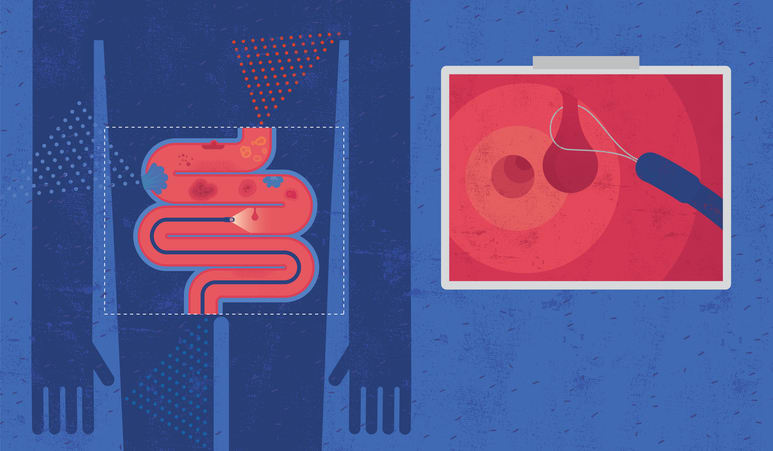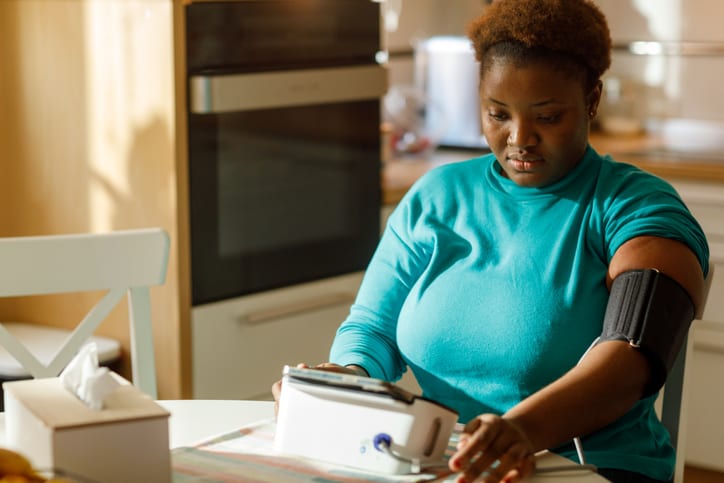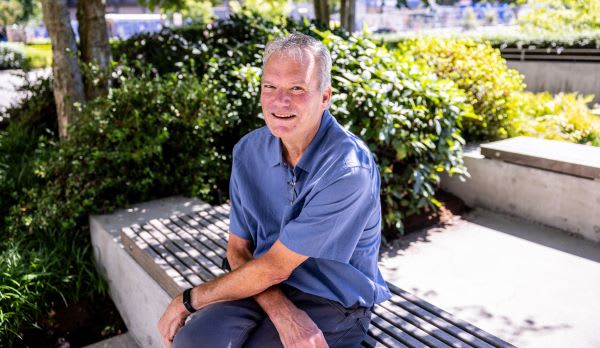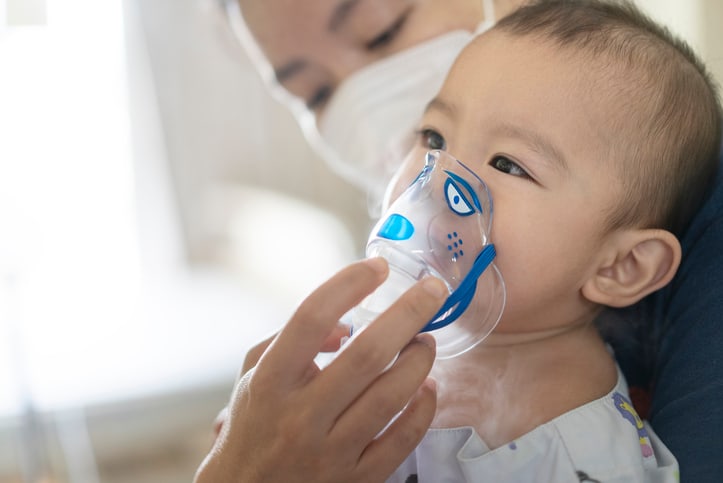Did you know that colon cancer is on the rise among younger adults? Screening is key to prevention.

[4 MIN READ]
In this article:
-
Data from the American Cancer Society points to a rise in colon cancer rates among younger adults aged 18 to 50.
-
Colonoscopies remain the most effective colon cancer prevention and detection for patients of every age.
-
Patients with a family history of colon cancer should consult their providers about having a colonoscopy when they turn 40.
-
Watch the short mythbusting video at the end of this blog to get the facts about colonoscopies from a Providence Swedish expert.
Younger adults are getting colon cancer and screening is key
Colorectal cancer is no longer considered a disease that only impacts older adults. Recent data shows an increase in cases among people under 50. This shift is significant — the American Cancer Society (ACS) estimates that colorectal cancer diagnoses in adults aged 18 to 50 have surged by 15% since 2004, making it the leading cause of cancer deaths among men under 50. For women under 50, colorectal cancer is among the top three causes of cancer deaths, along with breast and lung cancer.
We spoke with Rodney Kratz, M.D., a colon and rectal surgeon at the Swedish Cancer Institute and the Swedish Digestive Health Institute, who emphasized that these significant demographic shifts make it clear that patients need to understand the importance of preventive colon cancer screening.
What are the colon cancer screening guidelines for younger patients?
Colonoscopies remain the most effective method for preventing colorectal cancer because they not only detect cancer but also allow doctors to remove precancerous polyps before they become cancerous. The ACS recommends that adults begin colonoscopies at age 45 and earlier if they have additional risk factors like obesity, smoking or a family history of the disease.
“If someone has a family history of cancer, they should begin screening for colon cancer at age 40 and then every five years after,” says Dr. Kratz.
He adds that this also applies to patients who do not know their family history. For example, this includes people who were adopted.
“If a patient does not know their family history, we must assume that they have a family history and follow those screening guidelines,” he says. “This is because the only test or procedure capable of preventing colon cancer is a colonoscopy.”
At Swedish, every patient under 40 who is diagnosed with colorectal cancer gets genetic testing to establish a family history and determine if other relatives need to be screened.
Early detection via colonoscopy makes a difference
Colorectal cancer begins as small, noncancerous polyps in the lining of the colon or rectum. Over time, some of these polyps become cancerous and may spread to other parts of the body. During a colonoscopy, colon and rectal surgeons can remove all polyps — both precancerous and cancerous — to help prevent this progression.
The removal of polyps is called a polypectomy procedure, and it can often eliminate the need for more invasive treatments. If additional treatments are needed, they are more likely to be successful.
“Colonoscopies are unique because they prevent cancer,” says Dr. Kratz. “During the procedure, we can identify and remove polyps, stopping cancer in its tracks.”
The colonoscopy procedure is streamlined and painless
Dr. Kratz, who had his first colonoscopy at age 40 because of his family history, encourages patients not to let worries about the procedure or the bowel preparation delay them from scheduling a screening.
“My family and I made a before and after video of my first colonoscopy to help demystify the process,” says Dr. Kratz. “The bowel preparation wasn’t bad at all!”
Colonoscopy preparation begins the day before the procedure and involves fasting and taking a laxative. Often, the laxative formula can be mixed with a clear liquid like Gatorade. For the procedure, patients are given anesthesia, and once they are asleep, doctors direct a small camera inside the bowels to examine the colon and intestines.
Most patients head home in about an hour or two, though they will need someone else to drive them.
The colon cancer blood test does not catch precancerous growths
While it is a promising development, the recently approved blood test for colorectal cancer (the Shield test) has limitations. This test detects cancer in its earliest stages and offers patients a less invasive screening option.
However, unlike a colonoscopy, the Shield test is a detection tool, not a prevention tool. It is designed to detect cancer after it has already developed. It cannot detect or remove polyps. Patients still need a colonoscopy if they test positive via Shield because doctors will need to find and remove any polyps.
“At Swedish, we aim to prevent cancer whenever possible, and colonoscopies remain essential for that purpose,” says Dr. Kratz. “If you are experiencing bowel changes or any colon cancer symptoms, talk to your doctor, or come directly to us at the Swedish Digestive Health Institute. We don’t do colonoscopies on every patient who comes to us with concerns, and we can help you decide whether you need a colonoscopy or not.”
Colonoscopy mythbusting: Watch this short video and get the facts!
Learn more and find a physician or advanced practice clinician (APC)
If you or someone you love has questions about colon cancer or diagnosis, treatment or care the experts at Providence Swedish Cancer Institute can help. We can accommodate both in-person and virtual visits. We offer expert treatment of conditions that affect the colon and rectum. Swedish's Colon & Rectal Clinic is the largest in the Pacific Northwest and for more than 30 years, our experts at have been helping people from across the region experience better digestive health. Visit our website to learn about our services and locations.
Whether you require an in-person visit or want to consult a doctor virtually, you have options. Contact Swedish Primary Care to schedule an appointment with a primary care physician. You can also connect virtually with your provider to review your symptoms, provide instruction and follow up as needed. And with Swedish ExpressCare Virtual you can receive treatment in minutes for common conditions such as colds, flu, urinary tract infections, and more. You can use our provider directory to find a specialist or primary care physician near you.
Information for patients and visitors
Related resources
New colon cancer blood test does not replace colonoscopies
Get the scoop on your poop and what it says about your health
How to prepare for a colonoscopy
Follow us on Facebook, Instagram and X.
This information is not intended as a substitute for professional medical care. Always follow your healthcare professional's instructions.



